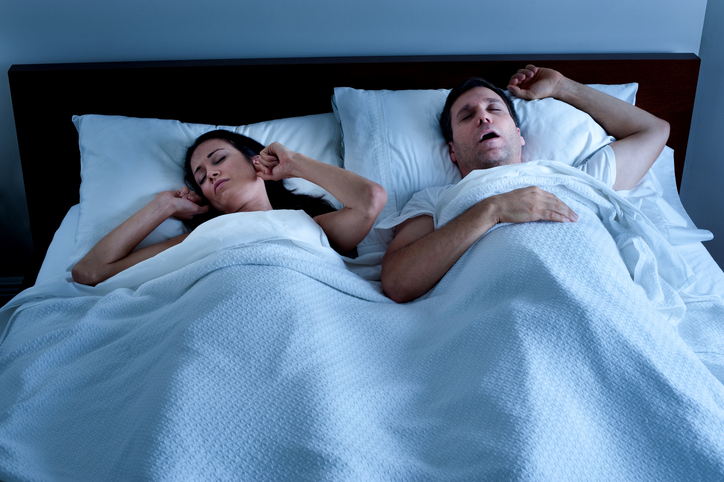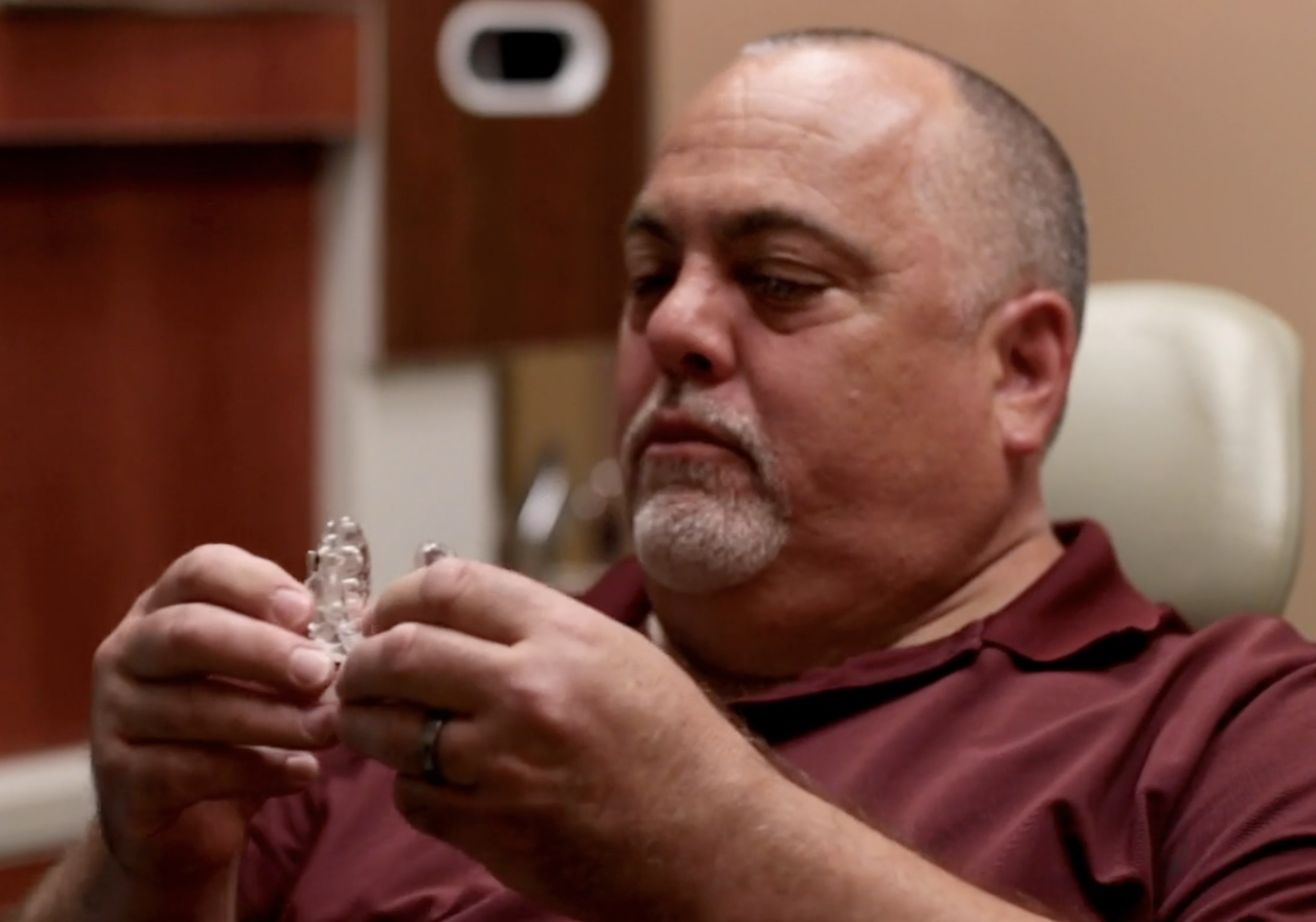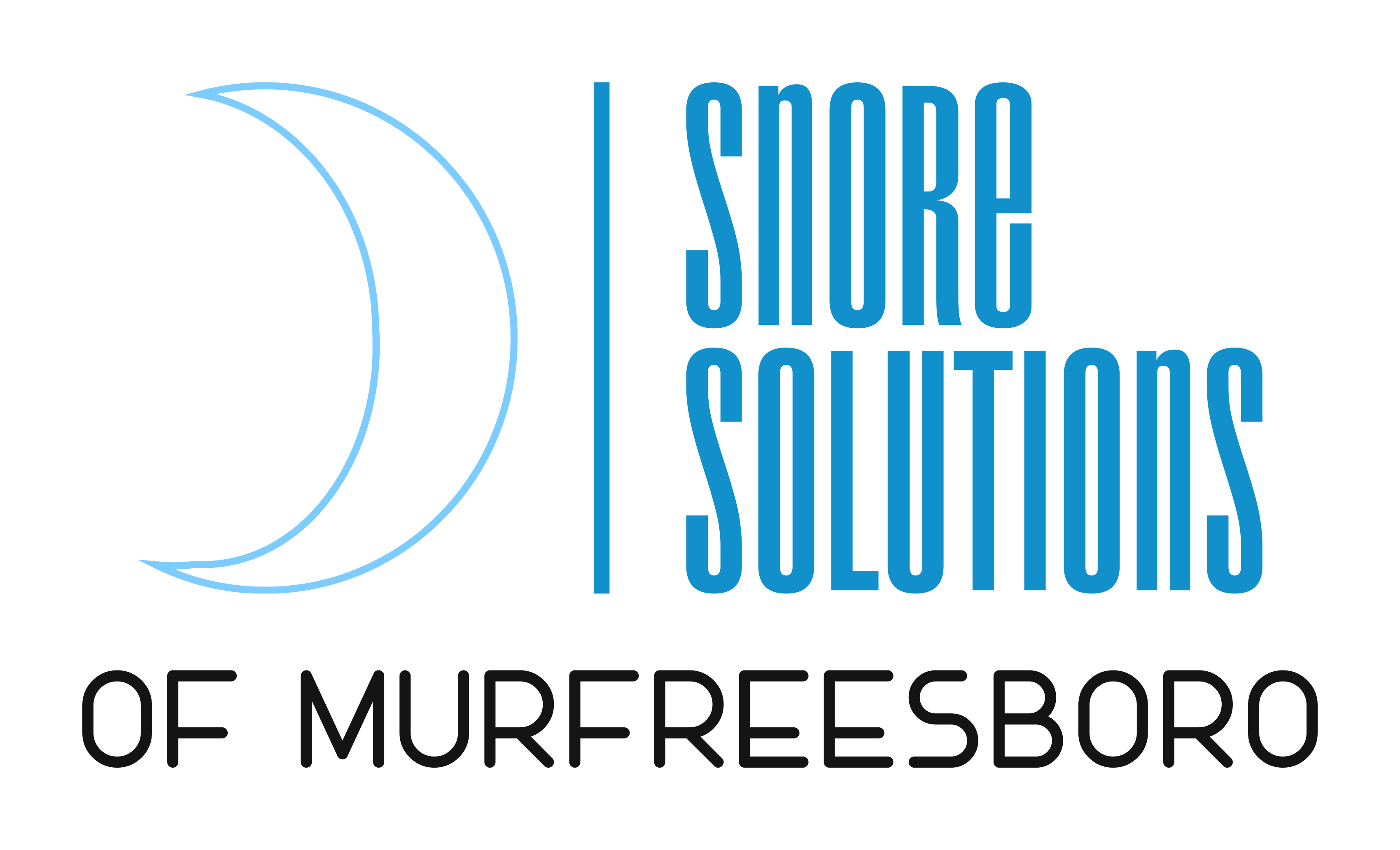Sleep Apnea vs. Snoring
Not all snoring is caused by sleep apnea
Just because you are snoring it doesn’t mean you necessarily have sleep apnea. Although, most people who do have sleep apnea experience heavy, disruptive snoring.

Common Signs of Sleep Apnea
- loud, heavy snoring
- daytime fatigue
- depression
- frequent jolting awake
- night sweats
- high blood pressure
Why snoring Isn't Sleep Apnea
Snoring can be caused by a stuffy nose, breathing through the mouth, or fast, hard breathing. Sometimes, a person can snore because their pillow is the wrong size, which makes their head tilt and their airways narrow.
Sleep apnea is a serious disorder that causes you to stop breathing and wake up in the middle of the night.
One of the best ways to tell the difference between normal snoring and sleep apnea is to learn about the symptoms of sleep apnea, because snoring is only one of them, even though it’s the most obvious one. If you don’t wake up gasping for air in the middle of the night and don’t feel tired all day, you may be snoring because of something else. People with sleep apnea don’t always feel tired during the day, but this is a common sign of obstructive sleep apnea.
Get Back to
Sleeping Soundly

Get Back to
Sleeping Soundly
Try an Oral Appliance
The goal of an oral appliance is to keep your airway open. It does this by moving your lower jaw forward just enough to give your tongue and any extra soft tissue in your upper throat more room in the back of your throat. By making this extra space, the obstruction in your airway is gone, and you can breathe easily without interruption or waking up during your sleep. AND you can say ‘so long’ to your snoring.
